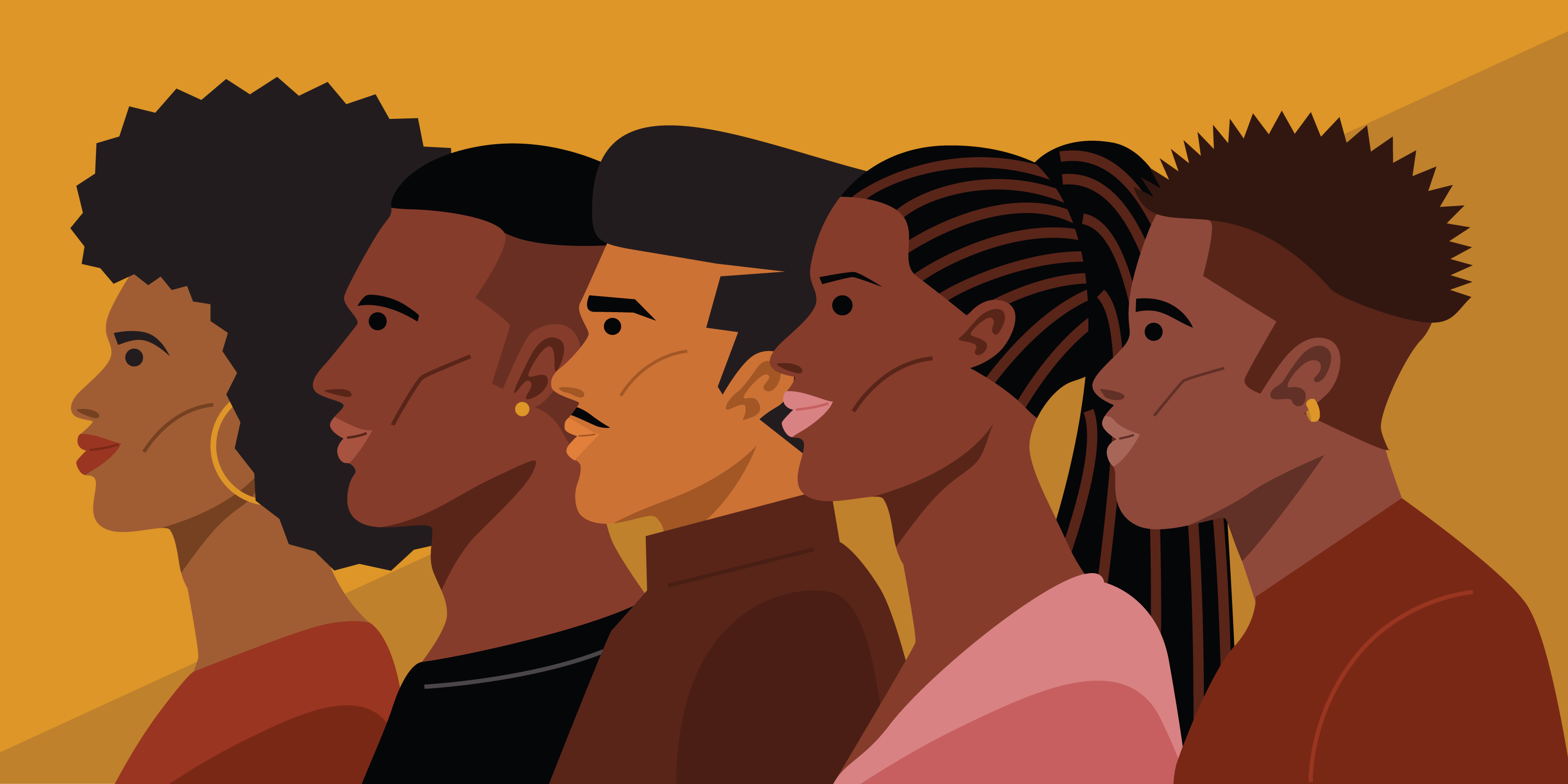What started as Negro History Week in February 1926 is now Black History Month, which became a national holiday in the U.S. and Canada in 1986 and 1995, respectively. This year’s theme focuses on Black health and wellness. As the new leader of our Black@Dataminr employee resource group (ERG), I’m proud and thrilled to use this special occasion to spotlight Black achievements, honor our rich history, and recognize our Black employees’ contributions to Dataminr’s culture, success and growth.
This is also an opportune time to reflect on the continued struggle for racial equity and justice. As such, I sat down with Robin Strup, Dataminr’s Vice President of Diversity, Equity and Inclusion (DEI), to discuss why this month of reflection is important, her DEI goals for Dataminr, and how we can all work together to empower our diverse, growing employee base.
Here’s what Robin had to say.
A lot has changed since Negro History Week evolved into Black History Month. What is its relevance today? Why is it important for us to keep recognizing and celebrating it?
Black History Month is as relevant now as it ever was. It’s a history many of us don’t really learn about until college or even graduate school. Recognizing and elevating the contributions of the people that helped build this country and many other communities around the world is important.
It’s also critical for us to anchor on history, especially at a time when we see proposed legislation on limiting or eliminating education on racial discrimination and inequities because it causes discomfort. In my work, I see the value of becoming more comfortable with discomfort and issues unfamiliar to our own life stories and experiences.
This year’s theme focuses on Black health and wellness. It’s particularly fitting, given the sharp rise in public calls for racial equity and justice, as well as how the Black community has continued to experience and witness a multitude of brutal attacks on its members. Amid these trying times, what can companies do to support the wellness of Black employees so that they can be their best, authentic selves at work?
I could tell you all about our comprehensive and inclusive employee benefits that serve people of all backgrounds—but that’s only half of the story. To truly support not only our Black employees but all our employees, we must be vulnerable, transparent and willing to admit that we’re on a journey. We’re constantly striving for DEI progress, and we do not have all the answers.
What businesses should consider—which we’re already doing at Dataminr—is to ensure that employee resource groups (ERG) are providing a safe and open space for employees to facilitate discussions and thus increasing a sense of belonging. ERGs are rapidly gaining popularity at U.S. companies as executives realize the critical role these groups play in not just supporting their employees, but achieving key business objectives.
Our own Black@Dataminr ERG acts as a remarkable resource for its members and the rest of the company everyday, including but not limited to celebratory days like Juneteenth and Martin Luther King, Jr. Day, as well as in trying circumstances like the months following the calls for justice for George Floyd. The group members are also ambassadors for creating action and accountability around our DEI goals.
We asked several Dataminr employees across the globe what they love most about Black culture, and what they wish more people knew and understood about it. What’s your take?
I love and am unabashedly proud of the strength, beauty and resilience of my Black culture. My parents were children of the “Black is beautiful” era of the 1960s. They raised my older sister and I to embrace our beauty, heritage and culture in environments that were sometimes at odds with our racial identities.
What I wish other people would do more of when thinking of Black history and what it means to be Black, is to truly appreciate the beauty and strength of Black culture. Saying ‘Black is beautiful’ doesn’t mean others are not—nor does it diminish other people’s ability to shine. Rather, it’s a statement of pride, perseverance and resilience.
As Dataminr’s VP of DEI, what are you doing to help the company be more inclusive of Black employees? Additionally, how are we increasing and sustaining diversity?
Dataminr is growing incredibly fast. We’re soon approaching 1,000 employees worldwide, and that means there’s a lot of work to be done. My team has six goals for 2022—although they’re not just for this year, but every year going forward.
No. 1: Increase diversity and inclusion within the company.
We’re doing this by developing early relationships with underrepresented groups and communities and investing more resources to expand our DEI partnerships globally. We’re also dissecting our candidate journey to understand what happens to them when they enter the system, and then provide a better experience for those coming after. Hiring managers also go through DEI training.
No. 2: Increase diversity and inclusion at the leadership level.
As leadership opportunities arise and openings present themselves, we will seize every chance to focus on DEI and present diverse candidates. What is also crucial is our focus on career mobility and progression, which enables employees to have appropriate training, attention and opportunity to flourish into leaders.
No. 3: Advocate for equitable systems.
This means being willing to have new policies, practices, behaviors and adaptable goals to drive complete systemic and culture change. One of the ways we’re doing that is to conduct equity audits with outside entities, which will analyze our current policies and procedures to make sure we have a robust system that offers all our employees an equal opportunity to thrive and succeed.
No. 4: Escalate cultural competence in the workplace.
As mentioned earlier, it’s crucial for our organization to keep facilitating opportunities and space for open and honest conversations. This allows employees to discuss and learn from each other, while empowering people to bring themselves to work.
No. 5: Be known as an iconic DEI employer of choice.
This means being a DEI trailblazer with the best practices and policies in the business. I hope to see people come to us and be part of the Dataminr family—because of the way we demonstrate our commitment to DEI goals and strategy.
No. 6: Provide more resources to grow and mature our ERG system.
I can’t emphasize enough how meaningful the ERGs are—not just to their members, but to our entire organization.
These goals are by no means easy to attain. But we’ll consistently monitor and share updates on our progress every quarter to ensure we stay on track.
Before we wrap up our discussion, I want to say how excited I am about the various events and activities you and the rest of the Black@Dataminr ERG have planned. They’re excellent vehicles to amplify Black voices and highlight Black excellence. I can’t wait to celebrate with you and to show our Dataminr family that we’ll keep working to cultivate an inclusive and equitable workplace environment for all.
Interested in joining our team? Check out our open roles.



